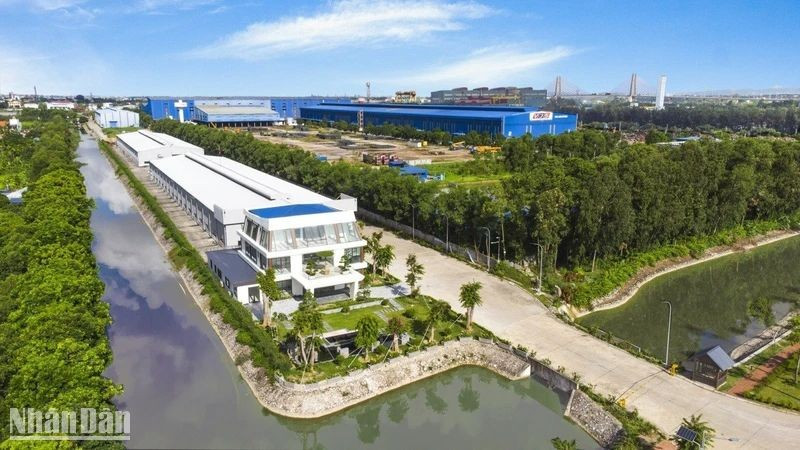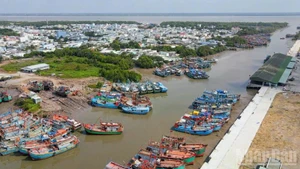In order to welcome green FDI projects, it is necessary to prepare clean infrastructure for investors to build factories. Vietnam has established 425 industrial parks and export processing zones with a total area of 89,000 hectares, of which 299 industrial zones have been put into operation.
In recent years, FDI capital in industrial parks and economic zones has accounted for 35-40% of total FDI pledges. The manufacturing sector makes up about 70-80% of FDI to Vietnam. Such figures show that industrial parks and economic zones have truly become key magnets for foreign investment, with the presence of many leading global corporations such as Samsung, LG, Canon, Foxconn and Lego. These companies play an important role in increasing Vietnam’s government revenue, creating jobs and accelerating Vietnam’s industrialisation, modernisation and economic restructuring.
In recent years, Vietnam has piloted projects in which a number of traditional industrial parks are being switched to ecological industrial parks by promoting cleaner production as well as cooperation in production to use resources more effectively. The advent of ecological industrial parks will create a new nationwide impetus to transform industrial parks to the new model.
Investment costs during the transition process will be high, but if the transition is slow, the costs would be even higher, which would reduce the competitiveness of manufactured goods. The active formation of ecological industrial parks also helps to attract green FDI inflows and communicate the message of a green, clean, ecological and sustainable investment climate to international investors, especially new-generation investors.
To implement the green growth plan and attract high-quality FDI inflows, the formation and development of ecological industrial parks is an inevitable path. This includes converting current traditional industrial parks to ecological industrial parks and building new ecological industrial parks in accordance with the specific conditions of each region and locality.
Furthermore, the government needs to promptly fine-tune and synchronise its mechanisms, policies, development models and management methods regarding ecological industrial parks. Incentive policies in tax, finance and land are also needed for those facing difficulties in this transformation.
















